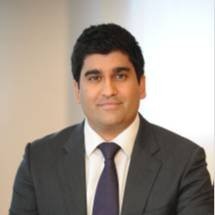‘Costly’ strategies actually save money – bfinance survey
In the largest asset owner survey it has conducted, consulting and manager search firm bfinance uncovered that the trend to alternative, and more ‘costly’ – in terms of fees – strategies has, overall, saved money for big pension and super funds. The survey of 485 fiduciary investors, including 37 from Australia and New Zealand, spoke for US$8 trillion in assets.
Kathryn Saklatvala, bfinance director of investment content, said the results of the survey were “quite remarkable”. The survey was conducted with the assistance of Pensions & Investments media organisation of the US.
Saklatvala said: “Although the average investor has transitioned towards a more complex portfolio, featuring greater use of non-traditional (and typically more costly) asset classes, they have achieved savings which more than outweigh those additional expenses. As a result, asset allocators’ average costs have fallen rather than risen over a three-year period.
“Furthermore, those savings are not necessarily coming from high-impact strategic shifts, such as insourcing or passive management. Although a minority (31 per cent) have moved towards passive equity over the last three years and 19 per cent have increased the proportion of assets managed in-house. Other less-publicised tactics such as mandate consolidation and ‘Transaction Cost Analysis’ have proven more popular. At the top of the list: successful fee renegotiations.”
The study also uncovers substantial geographical differences. In a nutshell, European and Australian investors have reduced their asset management fees – and costs in general – more than their North American and Asian/Middle Eastern counterparts, Saklatvala says.
For Australian and New Zealand institutional investors, Vishal Sharma, a senior associate in bfinance’s Sydney office, said: “We hope that the findings give the reader a fresh perspective on the key issues facing our clients and peers alike, such as asset allocation, implementation and costs.
“The focus on spending has rarely been stronger than it is today, particularly in Australia where consolidation and scale continue to dominate industry discussions. Yet there is one key area where investors must take care not to cut back: governance, He said last week.
“In portfolios with rising complexity and illiquidity, one of the most pressing challenges is for asset owners to achieve good governance of their implementation decisions. Compared with traditional public market investments, private markets can exhibit higher performance dispersion, higher concentration, higher risk of capital loss, higher costs and a high degree of structural/industry change from one cycle to the next. Robust governance frameworks have never been more important.”
– G.B.










